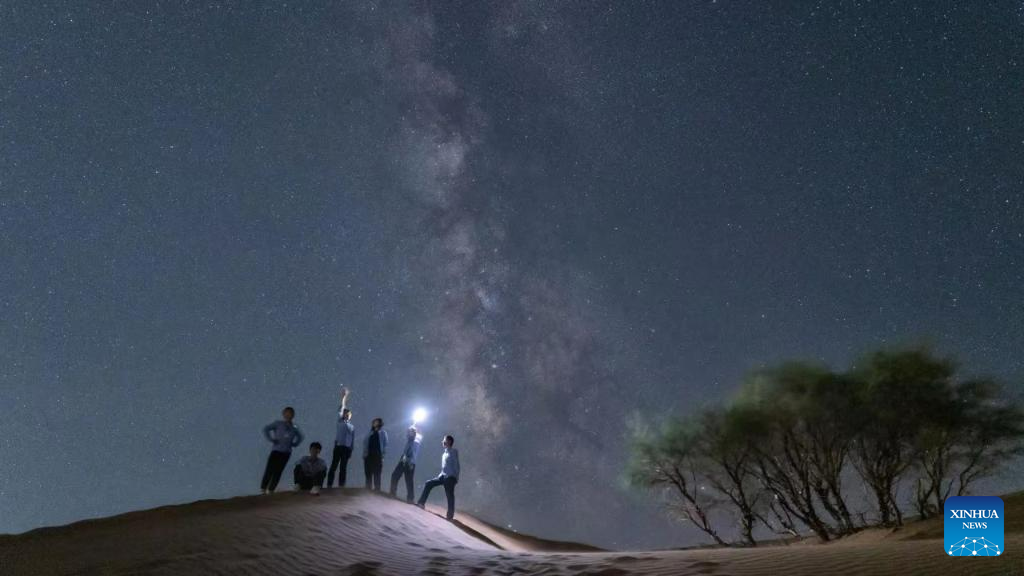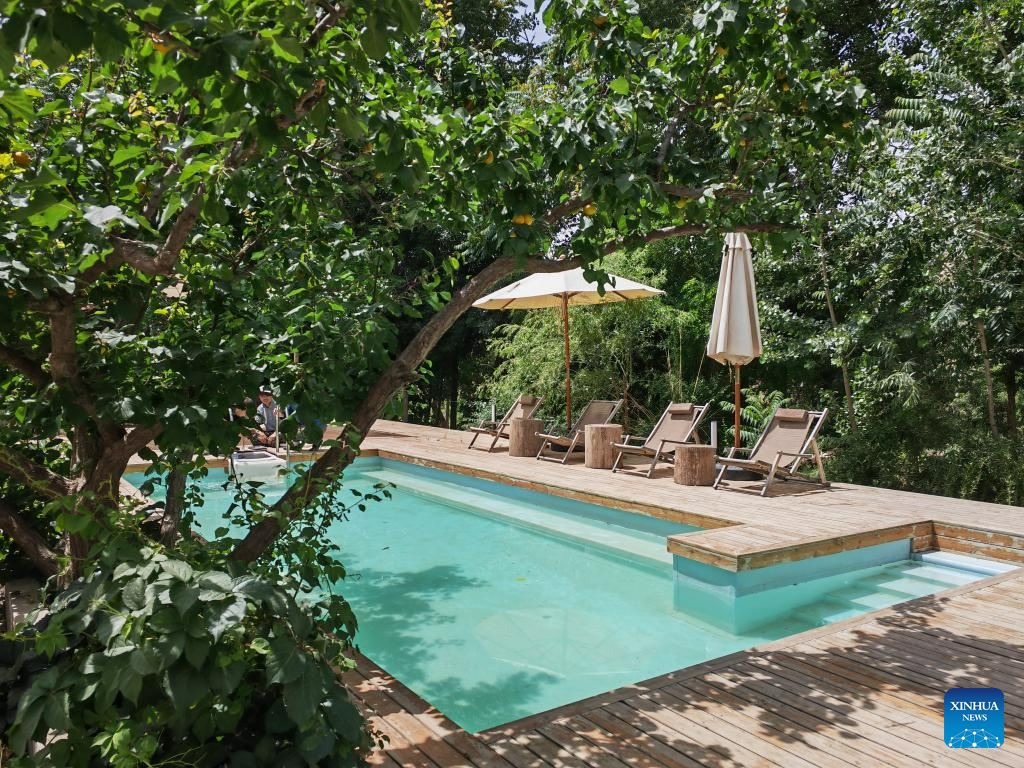
This undated photo shows visitors watching stars at the Shapotou scenic spot in Zhongwei, northwest China's Ningxia Hui Autonomous Region. (Xinhua)
YINCHUAN, June 17 (Xinhua) -- Lying in a bathtub, Zhu Lizhi looked at the Milky Way through the glass hotel roof, temporarily forgetting that she was in China's fourth largest desert, the Tengger Desert.
Hailing it as an "impressive experience" in her life, the mother of two from east China's Zhejiang Province was surprised to find facilities in the resort in northwest China so comfortable.
The star-gazing resort was in the Shapotou District of Zhongwei City in the Ningxia Hui Autonomous Region, where the desert meets the Yellow River, surrounded by unique scenery.
Apart from the regular facilities, such as a swimming pool, where Zhu's daughters were frolicking, there were also other forms of entertainment, such as sand-surfing, sand-skiing, and flying across the Yellow River.
While the desert is the main attraction in Zhongwei, the starry sky is another tourist resource. The desert is far from the crowd, and it is sunny for more than 300 days a year, which means that tourists can easily see the twinkling stars.
In November 2020, the Desert Star Hotel, in the shape of stars from an aerial view, opened to the public. Dubbed the "loneliest hotel in the world," it is believed to be China's first hotel in a desert with the theme of star-gazing. It provides services such as a star-gazing guide, sand therapy, and dinner in the sightseeing canteen.
"It is a luxury for people used to urban life to see the Milky Way nowadays. So they come here especially to watch the stars," said Yuan Lingjie, a 26-year-old star-gazing tutor at the Shapotou scenic spot.
A star-gazing enthusiast since childhood, Yuan studied astrophysics at university. Every evening he would teach some basic knowledge of the universe to tourists before leading them to see the stars in the desert.
According to Wang Xin, who works at the Desert Star hotel, all the rooms were booked out before September in spite of high prices.
Tourism revenue in the Shapotou District reached 883 million yuan (about 123.7 million U.S. dollars) in the first quarter of this year.
"There is a rising demand for star-gazing tutors nowadays," said Yuan, adding that an observatory is under construction in Shapotou, which will give tourists a better experience.
Along with the observatory, a bunch of hotels and theme parks are to be built in Zhongwei, as the city has pledged to invest 500 million yuan before the end of 2023.
With infrastructure improving in northwest China, tourists to the desert can also drive to the old villages alongside the Yellow River to have a short escape from urban life.
Dawan is a village in Zhongwei City, where high-end homestays opened to tourists in 2019. It also witnessed the emergence of various essential amenities, including bookstores, galleries, and restaurants.
"It looks like an ordinary village in northwest China, but the facilities are very convenient," said Zhou Ya, a young mother from Hunan Province in central China. "It is a tranquil place where we could relax."
Li Xuejing grew up in Dawan Village before moving out to the city in 2004. Seeing the development of the village, she, like many others, returned to seek a job.
She is now a staff with the homestays, where about 80 percent of the employees were villagers in Dawan. She told Xinhua that in spite of the changes, the appearance of the village remained largely unchanged, as the old houses, trees, and traces of life were still there.
"While attracting lots of young tourists, the soul of the village didn't change," she said. "When I work here, I feel like traveling back to my childhood." ■

This photo taken on June 11, 2023 shows a corner of a high-end homestay in Zhongwei, northwest China's Ningxia Hui Autonomous Region. (Xinhua/Ma Sijia)



